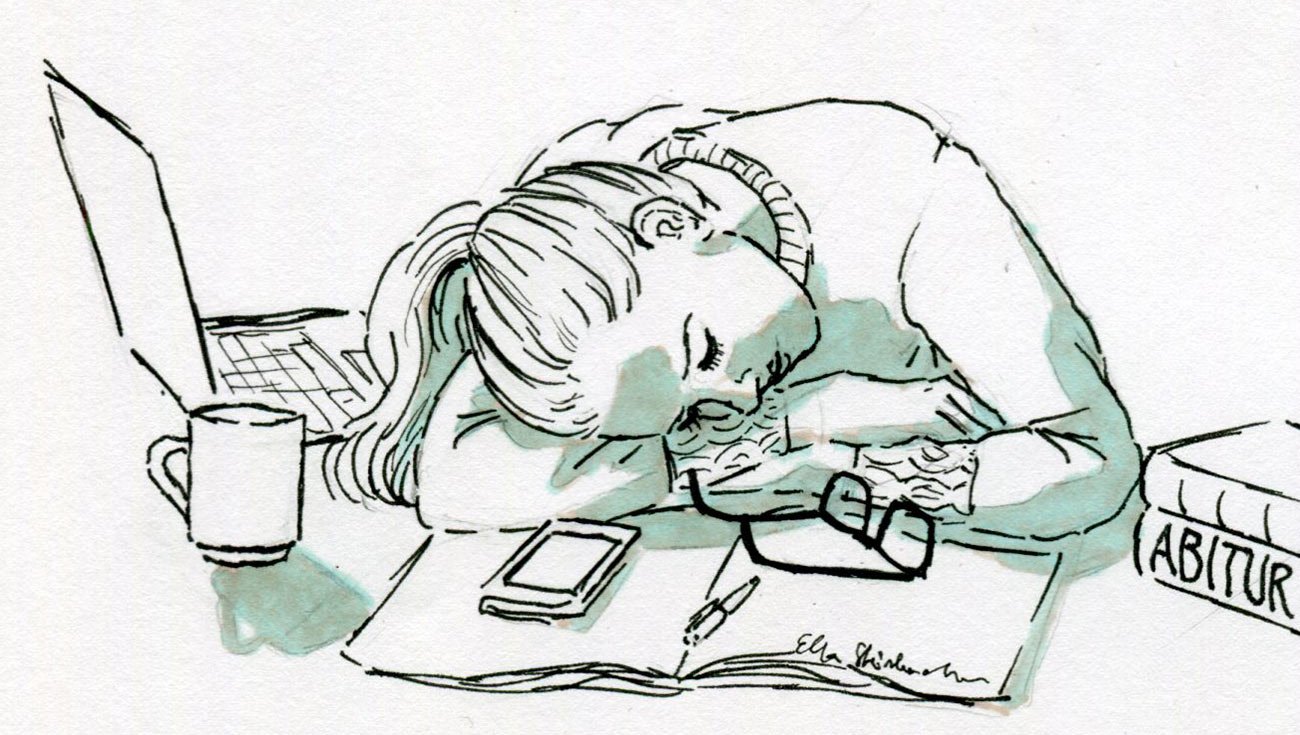Every three years PISA (Programme for International Student Assessment) studies the knowledge of 15-year olds all over the world. In this evaluation, Asian countries like Singapore and China get top scores every year and in every category. The reason for this is widely believed to be the insane amount of school and work hours children there have to face. School usually starts at 7 in the morning and, with extracurriculars and private coaching, ends at up to 11 at night.
Once the students get home, they have to do homework and study for upcoming tests. With so much work there is obviously not enough time to sleep, so students in Asia will often stay up whole nights to study and then either try to get some extra sleep on weekends or stay sleep deprived.
To test what this does to a person, Selina Daubermann decided to stay awake 48 hours and try to focus on studying during this time. She researched ways to stay awake and what tiring things to avoid and decided to alter the experiment once more, to give herself the restriction of not drinking any coffee or energy drinks over the course of her experiment. Selinas goal was to find out if skipping on sleep to study instead is really effective or if the lack of sleep causes a bad work environment.
The experiment started at 5 in the afternoon on February 18th and stopped at the same time two days later, on the 20th. During the first night, the studying seemed to work and Selina had no problems staying awake with a few short exercises in between study sessions. During school hours, she kept herself awake with high blood sugar, having found out that eating helps against sleepiness.
However in the evening her techniques seemed to stop working and she couldn’t concentrate on studying at all. She managed to stay awake, but there was no school work done in those hours. The rest of the day, until 5 o’clock, was spent trying to stay awake at all costs, while completely ignoring the content of her lessons.
According to a study made by David and Eva-Maria Elmenhorst, two neuro-scientists, sleep deprivation can cause a bad mood, lack of concentration, an increase of time needed to respond, short, almost narcoleptic periods of sleep and even hallucinations and paranoia. Over longer periods of time lack of sleep also increases the risk of overweight, depression and diabetes and causes problems with the immune system, meaning people who don’t sleep enough (at least seven hours every night) are four times more likely to catch infections like the flu or a cold. Furthermore, Elmenhorst describes several probands with four nights in a row of only five hours of sleep to behave similar to someone with a blood alcohol content of 0.06 percent.
Selina also showed several of these symptoms, like a lack of concentration, paranoia and hallucinations. She also gained weight over the course of her experiment, had aches in stomach and head and experienced a temporal decrease in her vision. All of this almost completely prohibited Selina from studying, the reason why she even stayed up so long. So according to her, sleep deprivation for a higher work pensum and better grades is useless.
Furthermore, studies show that sleep deprivation is not only useless for work reasons but can also be outright dangerous, seeing as how for example there is a restriction on people who consumed alcohol driving cars, but people who “just” lack sleep but have similar problems with coordination and concentration are free to drive.
A lot of the time people also try to compensate their lack of sleep with drugs, therefore putting those students in Singapore and China at a high risk for addictions to caffeine, nicotine and alcohol.

